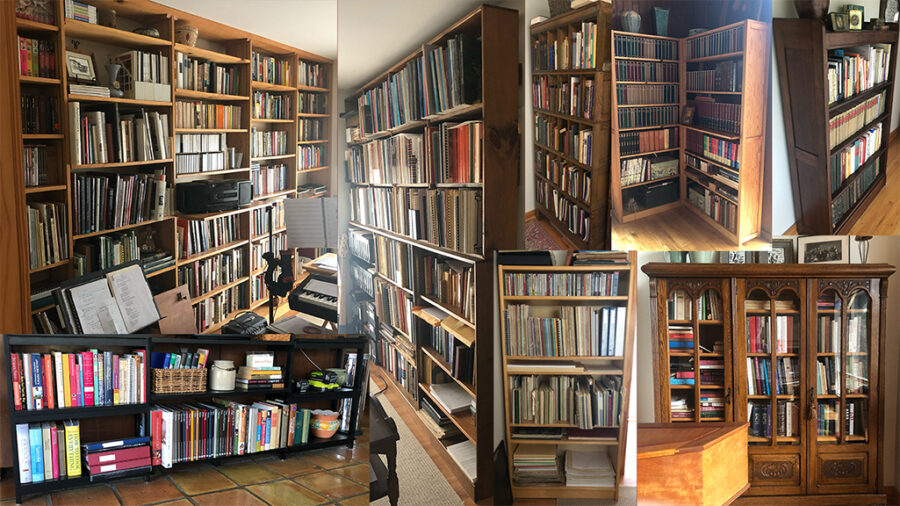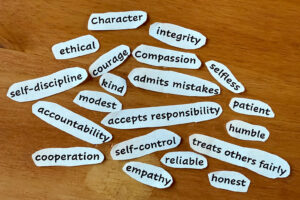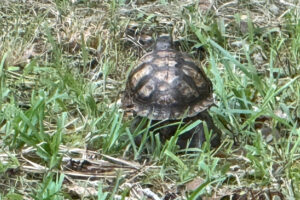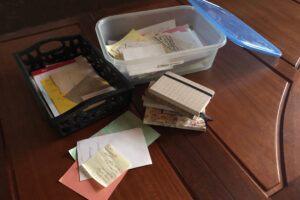Is there such a thing as too many books? I guess it depends on who you ask—ask someone thinking of moving or downsizing—ask someone building more bookshelves. For heavens sake don’t ask anyone with a simple, minimalist perspective!
You don’t have to burn books to destroy a culture. Just get people to stop reading them.
— Ray Bradbury (1920-2012) American author and screenwriter
If you read my recent blog “Power of Words” you can surmise that along with my love for words, I also love books. My husband and I tend to buy books, although in the past four or five years we have given away quite a few. As we get older, we realize there are some books we will never have time to read and other books we love, but will never make time to reread.
I confess that I am more in love with the idea of reading books than I am of actually reading. I have trouble quieting my mind long enough to settle into reading. If I begin a book . . . well, I may end up starting four or five and before long must divide my time between them all. Then, something else comes along that takes my attention and I completely forget I was reading a book. Sounds like ADD doesn’t it? It could be. I have never been diagnosed. I am able to function and get most important things done. I must hasten to say that I can read complete books—if I set my mind to it.
Current Reading
At the beginning of November I began a “project” of being creative everyday—by writing, composing, or songwriting. I find that reading sparks my imagination and learning new, useful, or interesting information is energizing.

During the pandemic I ordered three or four books. All of which I started and intend to finish reading at some point. Currently I am reading an essay by Malcolm Guite everyday in his volume In Every Corner Sing: A Poet’s Corner Collection. This settles me down to peruse song lyric books—Tom Waits, Paul Simon, Bob Dylan, Joni Mitchell, and others.
I recently heard about Temple Grandin’s latest book, Visual Thinking, and decided I must read it. It was only about ten or fifteen years ago I realized that I think in pictures and not everyone does. The book arrived several days ago and I have started reading a bit everyday.
I am working on a blog about Ross Lee Finney—the teacher who inspired and urged me to compose. I have a book of his essays which I have read, but am currently rereading. I have found that what sticks out to you may depend on where you are in life at that moment.
And let’s don’t forget this other book on my desk, Discourses and Enchiridion by Epictetus. I did not take philosophy in college, but I recently ran across some ideas from Epictetus. It made me want to know more.
Too many books? We happened to have the Epictetus book. It is an old volume from a set that belonged to my husband’s father.

Too Many Books?
Too many books? Even if we never read them all? When I look at them on the shelves and sometimes take one down to read a chapter or two . . . it always reminds me that there is so much knowledge in the world—more than I can ever know or comprehend. It puts me in my place. It inspires me to think deeper and to realize my viewpoint or opinion is not the only one . . . and, I might be wrong about something.
In our modern world, we have the internet—the whole world is in one place. I love that, but I had rather hold a book in my hand to read—to feel the paper, to turn the page, to smell the particular smell that only books have.
I love books. I adore everything about them. I love the feel of the pages on my fingertips. They are light enough to carry, yet so heavy with worlds and ideas. I love the sound of the pages flicking against my fingers. Print against fingerprints. Books make people quiet, yet they are so loud.
— Nnedi Okorafor (b. 1974) Nigerian-American writer of science fiction and fantasy
Even though the whole world can be found in one place (on the internet), as a people, as a society, we are not more educated or thoughtful. Maybe having the world’s knowledge in one place makes it too easy and makes us lazy. It is a modern convenience for sure . . . and, I do take advantage of it for quick information.
However, there is nothing like a book—a physical, tangible object. When I walk into a library or bookstore and see the thousands of tomes, I realize how small I am. Many others before me have pondered the same thoughts and ideas. They have experienced life as I have, although maybe in a different century or geographic location. Creatives have written poems, essays, and novels. Scientists, theologians, philosophers, and mathematicians have pondered life’s questions and meaning.
You think your pain and your heartbreak are unprecedented in the history of the world, but then you read. It was books that taught me that the things that tormented me most were the very things that connected me with all the people who were alive, who had ever been alive.
— James Baldwin (1924-1987) American writer
Never Too Many Books
Is there such a thing as too many books? My answer would be no. Even as I struggle to downsize our collection of books, I find I love them even more. Some are old friends. Some are reminders of what I love. And, some urge me to learn more and acquire greater knowledge.
I will certainly cull more books as time passes, but nothing takes away the stories, the memories, or the information gleaned. What do you think? Can you have too many books?
Books are the plane, and the train, and the road. They are the destination, and the journey. They are home.
— Anna Quindlen (b. 1952) American author, journalist, and opinion columnist
I think Carl Sagan says it best.
What an astonishing thing a book is. It’s a flat object made from a tree with flexible parts on which are imprinted lots of funny dark squiggles. But one glance at it and you’re inside the mind of another person, maybe somebody dead for thousands of years. Across the millennia, an author is speaking clearly and silently inside your head, directly to you. Writing is perhaps the greatest of human inventions, binding together people who never knew each other, citizens of distant epochs. Books break the shackles of time. A book is proof that humans are capable of working magic.
— Carl Sagan (1934-1996) American astronomer, planetary scientist, cosmologist, astrophysicist, astrobiologist, author, and science communicator










Leave a Reply
Your email is safe with us.